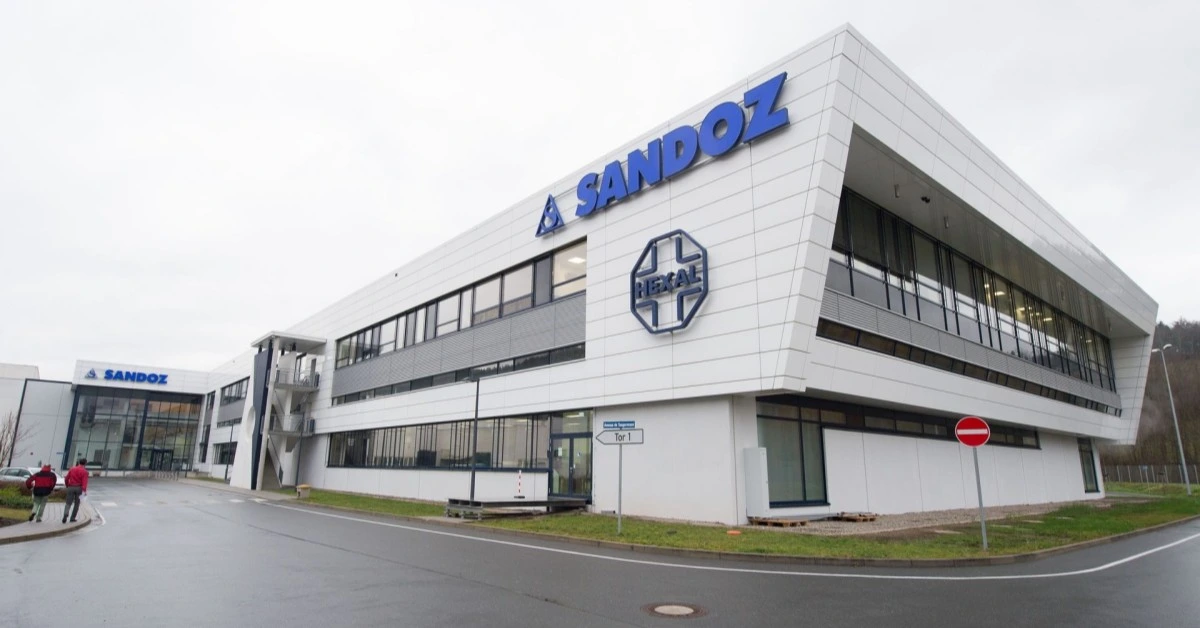
SWITZERLAND – Sandoz, now an independent company after its spin-off from Novartis in October 2023, has reported a 9% increase in net sales of generics and biosimilars for 2024.
The Swiss pharmaceutical firm achieved US $10.4 billion in total net sales, with biosimilars driving most of the growth. While generics remained the core business, generating US $7.5 billion with a modest 2% growth, biosimilar sales surged by 30%, bringing in US $2.8 billion.
Investor confidence remained steady, with Sandoz’s stock opening nearly 1% higher after the announcement. The company currently holds a market capitalization of US $19.2 billion.
Sandoz’s financial performance comes amid significant geopolitical uncertainties, particularly U.S. trade tariffs on imports from China, Canada, and Mexico. These tariffs could impact drug pricing and supply chains across the biopharma industry.
“The U.S. accounts for just under 20% of our global revenues. We see strong growth potential there, but we’re not dependent on any one market. Potential tariffs are factored into our 2025 guidance, but for Europe, it’s too early to predict,” said Sandoz CEO Richard Saynor.
Biosimilar expansion and key product launches
Sandoz credited its biosimilar growth to the successful uptake of Hyrimoz, a biosimilar of Humira, through a private-label deal with CVS subsidiary Cordavis.
Humira, once the world’s best-selling drug, generated US $21.2 billion in 2022 before facing biosimilar competition.
Beyond autoimmune treatments, Sandoz expanded in ophthalmology, securing FDA approval in August 2024 for Enzeevu (aflibercept-abzv), its biosimilar for wet age-related macular degeneration (AMD).
In March 2024, Sandoz further strengthened its retinal disease portfolio by acquiring Cimerli (ranibizumab-eqrn) for US $170 million, competing against rivals Biocon Biologics and Samsung Bioepis.
Challenges in generics and global market adjustments
While biosimilars flourished, Sandoz faced price erosion in its U.S. generics business.
Additionally, the company’s decision to divest its China operations in late 2023 impacted international growth. South African-based Aspen Pharmaceuticals acquired Sandoz’s Chinese business for US $100 million.
To streamline operations, Sandoz reduced its internal manufacturing sites from 18 to 15 while boosting production capacity at the remaining locations. The company also consolidated its external supplier network to enhance efficiency.
“This allows us to simplify our supply chain, optimize capacity, and stabilize costs. Ultimately, it secures supply and increases patient access to critical medicines worldwide,” Saynor stated.
2025 outlook and legal landscape
Looking ahead, Sandoz expects mid-single-digit growth in net sales for 2025. The company has already launched the Stelara biosimilar Pyzchiva (ustekinumab-ttwe) in the U.S. and plans to introduce Tyruko, a biosimilar of Tysabri, later in the year.
However, the biosimilar market remains legally complex. In a recent case, Johnson & Johnson sued Samsung Bioepis over a contract dispute involving Stelara, highlighting ongoing patent and exclusivity battles in the industry.
XRP HEALTHCARE L.L.C | License Number: 2312867.01 | Dubai | © Copyright 2025 | All Rights Reserved